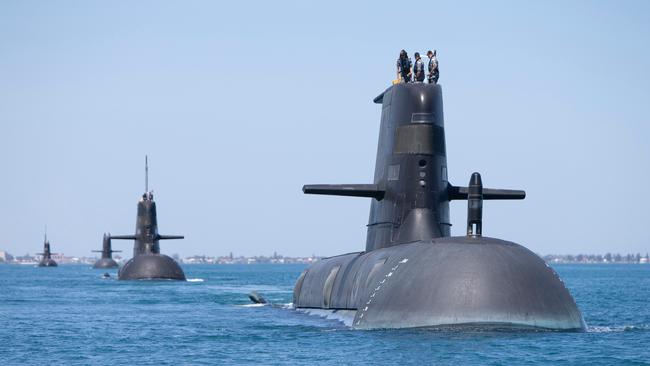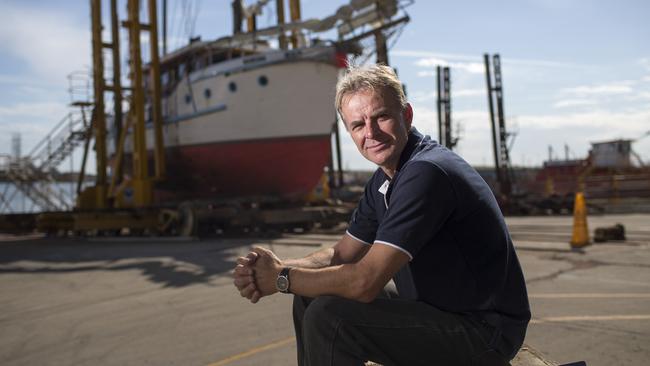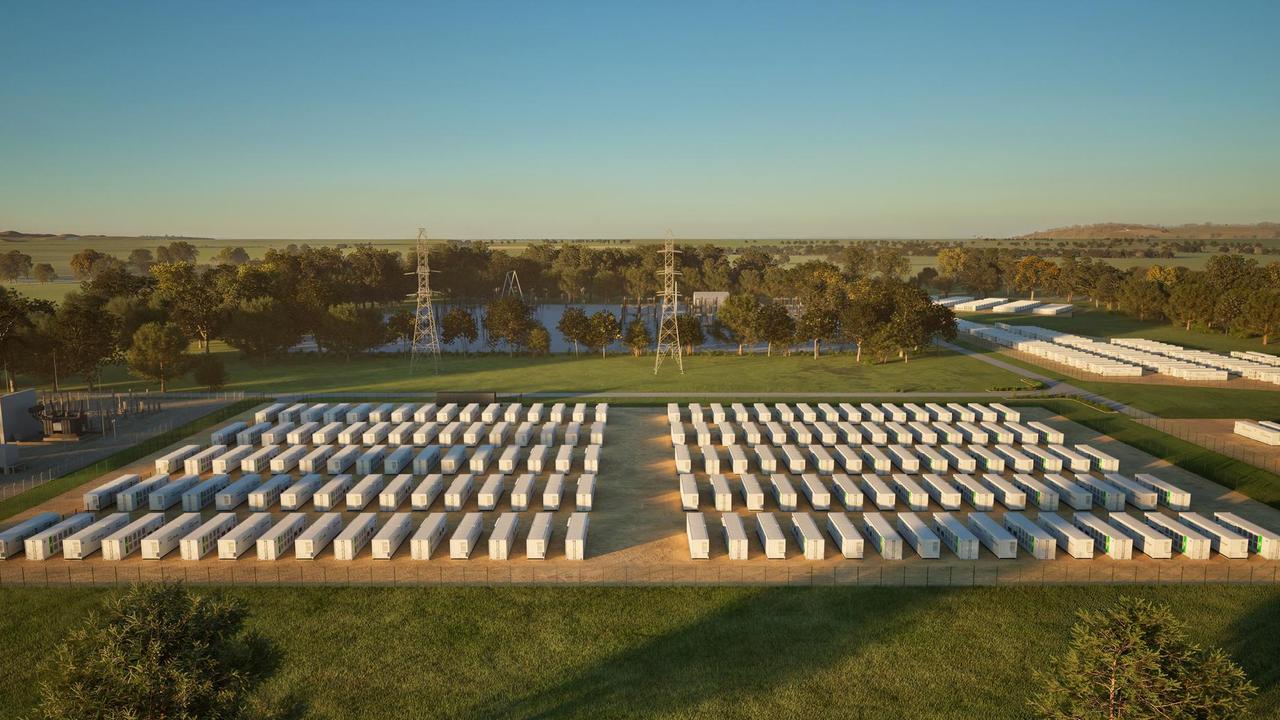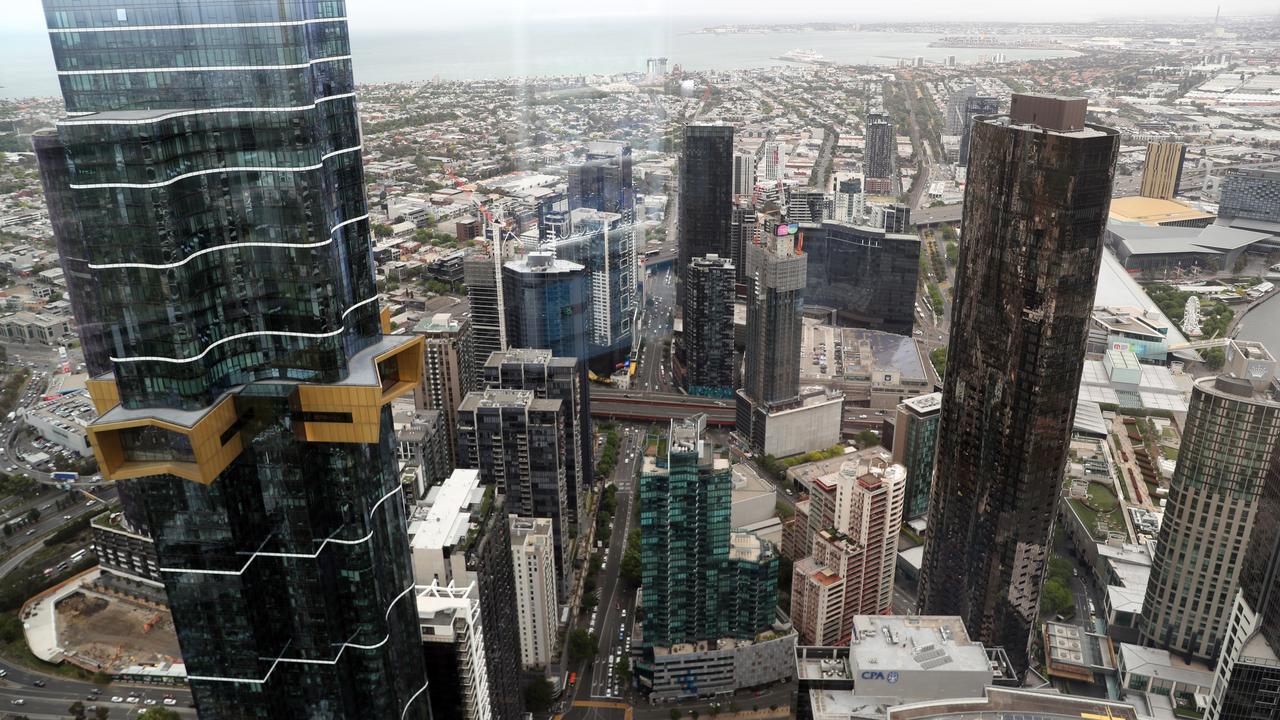Frustrated Defence Teaming Sector pushes Albanese government to support local supply chains
Frustrated firms in the Australian defence supply chain are opting out in droves and industry figures say the future of our sovereign industrial capability is on a knife edge.

Companies in the Australian defence supply chain are very much in “the valley of death” as the federal government’s aspiration to develop a continuous shipbuilding program fallen short, industry experts say.
Good companies are also opting out of the sector, finding that timelines are too long and the return on investment often doesn’t stack up, Defence Teaming Sector chief executive Audra McCarthy said.
As the sector readies itself for the anticipated public release by the federal government of the Defence Strategic Review, expected as soon as next week, Ms McCarthy said there was frustration, particularly among small to medium enterprises, about the way defence procurement has been managed in recent years.
Other SMEs have expressed frustration about spending hundreds of thousands of dollars preparing for that program, only to have the process likely restarted under the new AUKUS agreement.

While there is a broad commitment to build the AUKUS nuclear powered submarine in Australia, what “build” actually means has not yet been defined, Ms McCarthy said.
“Industry as a whole, particularly the SME community, are frustrated because we’ve seen the cancellation of a couple of programs and then we’ve had government put programs on hold awaiting the Defence Strategic Review outcome,’’ Ms McCarthy said.
“For SMEs that’s a lot of waiting. We had policy change introduced a couple of years ago and government trying to avoid the peaks and troughs of spending to build a sustainable sovereign defence industrial capability through the implementation of the continuous naval shipbuilding program.
“The policy string’s right but how we’ve executed the policy is still problematic because we don’t have a continuous naval shipbuilding program because we don’t have a submarine decision yet.’’
Ms McCarthy said many businesses invested in their operations on the promise of work to come, and it had not eventuated. And some of these businesses were now deciding it was all too hard. she said.
“We had politicians going around telling everyone to get behind this program, ‘you’ve got to make the changes to your business to be considered’, and they did that ... now they have to sit around and wait.’’
Ms McCarthy said the federal government could best help industry by making timely decisions to go ahead with programs, and should consider sole source contracting, whereby contracts are not put out to tender, which can be costly and time-consuming.
“The best support which can be given to companies is purchase orders to be honest,’’ she said.
“We want timely decisions made and we want those decisions to be executed as quickly as possible.
“At some times I think it’s appropriate for government to make some sole source procurements to Australian businesses so that industry aren’t wasting time bidding for an offer that may not necessarily be on the table for them.
“To build the sovereign industrial capability that we need, we do need to start picking winners and supporting those companies to grow.’’
Former SA minister for defence Martin Hamilton-Smith, who now heads up the Australian Sovereign Capability Alliance, said the industry now found itself in the “valley of death” between major shipbuilding programs, which was exactly what governments of all stripes had been aiming to avoid over many years.
Mr Hamilton-Smith said there had been “a little bit too much talk and not enough action’’ in supporting the defence industry.
“This is the valley of death, this is the reality ... lost jobs and closed companies,’’ he said.
Federal Defence Industry Minister Pat Conroy saif it was understandable that some companies felt burnt by the chopping and changing under the previous government.
““The Albanese Government is committed to spending over 2 per cent of GDP on defence over the forward estimates, the highest level in decades,’’ Mr Conroy said.
“This includes billions on Australian defence industry. The Government is developing a new Defence Industry Development Strategy which will be released later this year, following the Defence Strategic Review.’’
South Australian Minister for Defence and Space Industries Susan Close said a decision on the AUKUS submarines was imminent, and “work is well underway developing supply chain opportunities, as well as our skills base and infrastructure’’.
“With BAE System expected to cut steel on the first batch of three Hunter Class frigates this year, local companies are already engaged supporting the manufacture of these ships,’’ she said.
“As the program progresses more and more local companies will be contracted for equipment and parts manufacture, supply and assembly.’’






